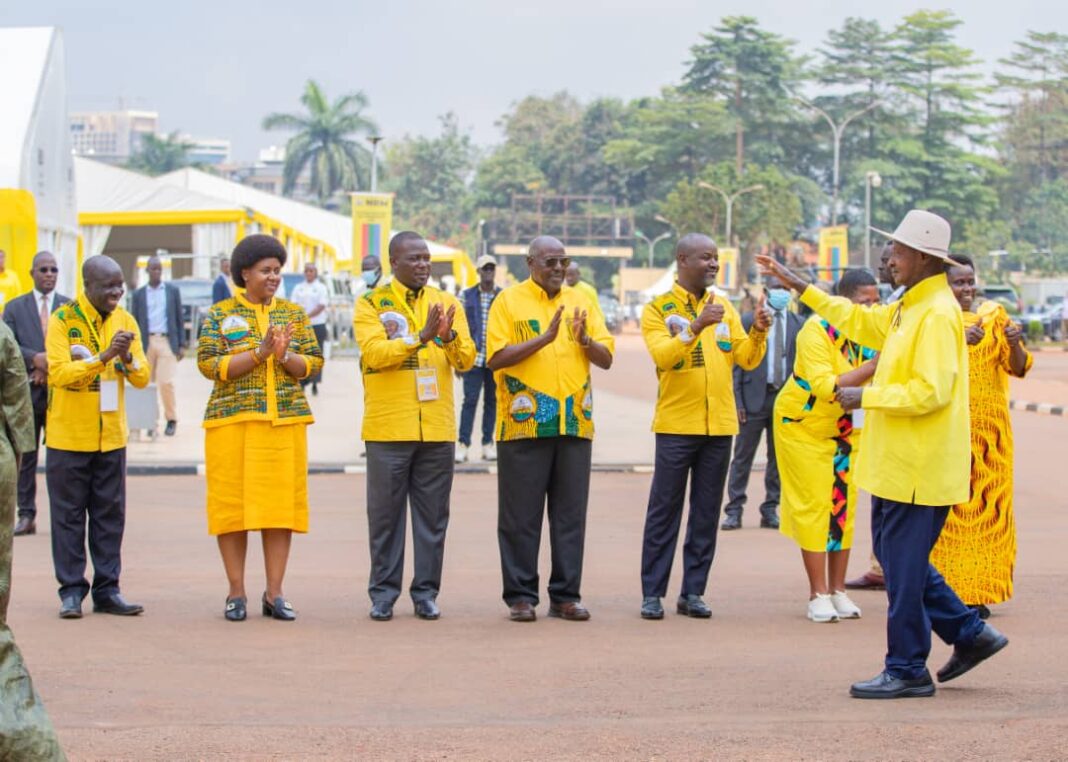President Yoweri Museveni has officially opened the ruling NRM National Delegates Conference at Kololo Independence Grounds, where delegates endorsed him as party national chairman and presidential flagbearer for the upcoming general elections.
The two-day meeting also renewed Al Hajji Moses Kigongo’s mandate as the NRM’s first vice chairperson.
In his opening address, Museveni urged Ugandans to focus on wealth creation rather than relying solely on public infrastructure.
“You spend most of the time talking about roads, schools and hospitals. Yes, they are important because they serve everyone. But at night, you don’t sleep on the road, hospital or school—you return home to face problems like poverty, hunger and unemployment,” he said. “Wealth is key. Development benefits a group, but wealth benefits an individual.”
Related Articles:
NRM Fronts Museveni Again As It Presidential Flagbearer For 2026 General Elections.
Jim Muhwezi Suffers Defeat As NRM Delegates Push For Change
Calvin Echodu To Bridge Gap Between NRM Leaders and Grassroots In Eastern Uganda
JUST IN : Adrine Kobusingye Wins NRM Women’s League Chairperson
The president stressed that wealth can be built through commercial agriculture, manufacturing, services such as transport and tourism, as well as ICT. He challenged leaders to guide citizens toward wealth creation, saying it would ease the country’s progress.
Economy Growth Target
Museveni announced that Uganda’s goal is to expand its economy tenfold to $500 billion within the next 15 years. He traced Uganda’s economic journey, recalling that in 1962 only 9% of households participated in the money economy, with the rest engaged in subsistence farming.
He noted that under the NRM, diversification expanded cash crop production, followed by phases of value addition and now the knowledge economy, citing the locally assembled Kiira EV electric vehicle as an example.
“Because of these phases, our economy has grown from $3.9 billion to $66 billion—17 times bigger,” Museveni said. “The next step is moving from a lower middle-income country to an upper middle-income economy, building a modern society driven by brains and skills rather than muscle.”
He explained that modernization would mean mechanized farming, piped water access, and households shifting from firewood to electricity for cooking.




